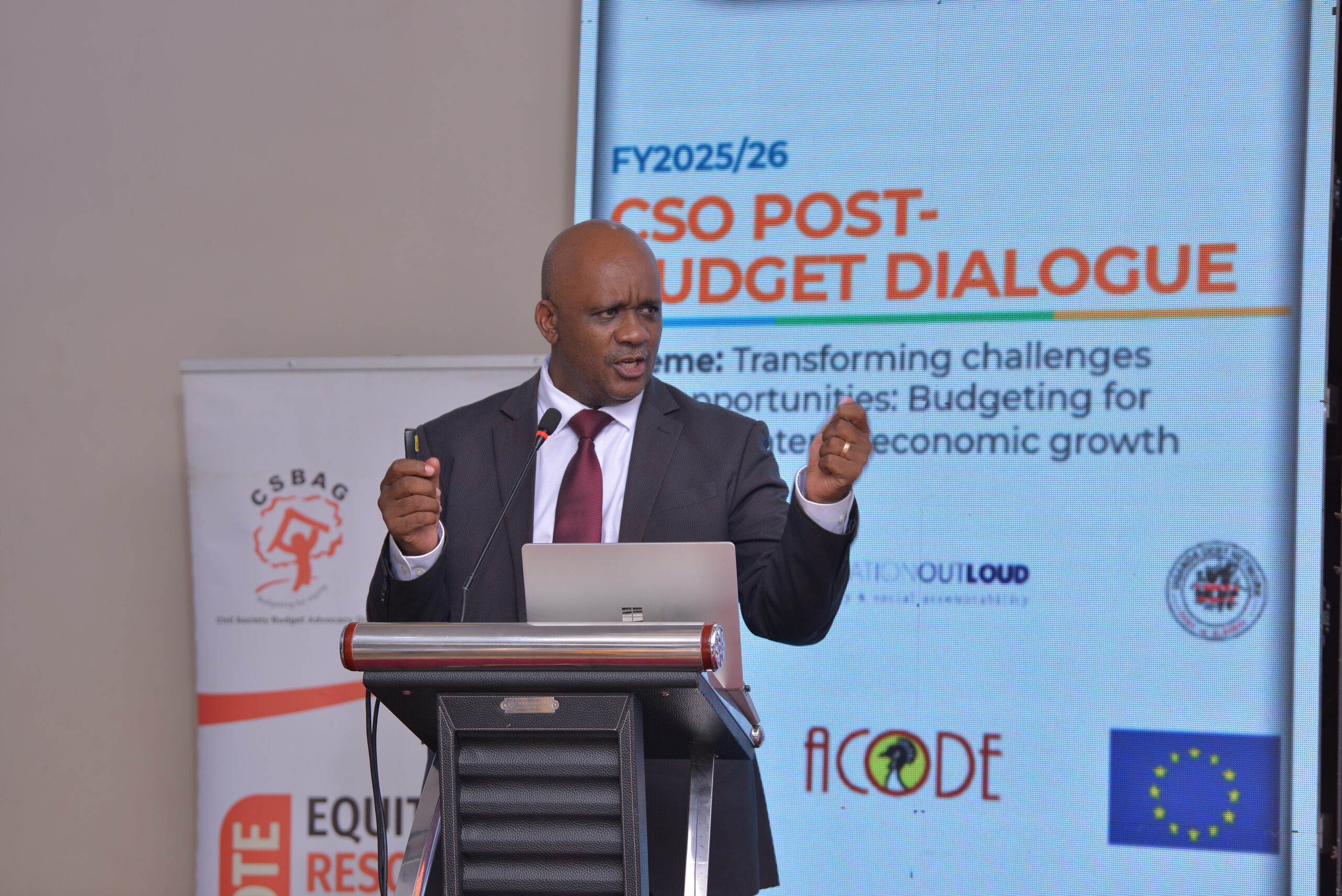Uganda’s budget bombshell: Poverty eradication on the horizon

Uganda’s recently unveiled FY2025/26 national budget, totalling UGX 72.37 trillion, signals a measured but deliberate approach to development financing, with a sharpened focus on poverty reduction and inclusive growth. This was the central message delivered by Julius Mukunda, Executive Director of the Civil Society Budget Advocacy Group (CSBAG), during a post-budget dialogue organized by civil society organizations at Mestil Hotel in Kampala on June 18th.
Despite a marginal increase of just 0.3% from the previous fiscal year, Mukunda described the budget as “a strategic balancing act in a tight fiscal environment.” Over 80% of the total resources are sourced domestically—through tax and non-tax revenue and domestic borrowing reflecting the government’s intensified drive for self-reliance amid global economic headwinds.
Strategic spending to tackle poverty head-on
A significant highlight of the budget is its focus on infrastructure, agriculture, and social services—all viewed as critical drivers of poverty alleviation.
“Connectivity is opportunity,” Mukunda noted. “When we invest in roads, bridges, and railway systems, we’re investing in markets, jobs, and incomes.”
The infrastructure sector receives some of the heftiest allocations, with UGX 2.2 trillion for roads and bridges and UGX 2.17 trillion for the Standard Gauge Railway. Water infrastructure is also prioritized with UGX 81.07 billion.
In the agriculture sector, seen as a lifeline for the majority rural population, government has earmarked UGX 81 billion for coffee development one of Uganda’s top export earners UGX 47.6 billion for agricultural credit, and UGX 90.97 billion to support industrial parks. These measures aim to empower smallholder farmers and boost agro-industrialization.
Investing in people and planet
Alongside physical infrastructure, the budget invests in human capital and social development. It sets aside UGX 244.94 billion for expanding secondary education, and allocates UGX 23.66 billion for programs supporting youth, women, and persons with disabilities.
“Development is not just about roads and factories, it’s about people. If we fail to invest in education, in health, and in social protection, we fail to reduce poverty,” Mukunda warned.
Climate resilience also gets a notable boost. UGX 275.09 billion has been allocated for SMEs and climate-smart agriculture, while UGX 346.42 billion is set to scale up electricity access, especially in off-grid areas.
The debt dilemma
However, the elephant in the budget room remains Uganda’s ballooning debt. Debt servicing alone will consume UGX 26.84 trillion—more than a third of total expenditure.
“This is deeply worrying,” Mukunda cautioned. “We are essentially using over 37% of our national budget just to pay back what we owe. That’s money that could have gone into schools, health centers, or food security.”
He urged the government to strengthen debt management strategies and ensure that borrowed funds are efficiently utilized for impactful development, rather than lost to inefficiencies or mismanagement.
Regional equity: Leaving no one behind
Uganda’s poverty map reveals sharp regional inequalities. While Kampala boasts a poverty rate of just 1.1%, regions like Karamoja grapple with extreme deprivation, with rates as high as 74.2%.
“The budget must reflect the lived realities of all Ugandans—not just those in urban centers,” Mukunda emphasized. “Karamoja doesn’t just need aid—it needs long-term, locally-driven development investments.”
He welcomed targeted funds such as the UGX 231.33 billion for women’s enterprises and UGX 5 billion for support to older persons, but called for deeper commitment to addressing systemic regional disparities.
Recommendations and the road ahead
Mukunda concluded with a set of key recommendations: managing debt sustainably, improving efficiency in public spending, and fostering stronger partnerships with development partners.
“Every shilling must count,” he stressed. “If we can spend smarter—not just more—we can ensure real impact.”
While challenges remain, Mukunda acknowledged that the FY2025/26 budget lays important groundwork for Uganda’s journey toward poverty eradication.
“The path to inclusive development is long and winding, but with the right policies and political will, we can get there.”




